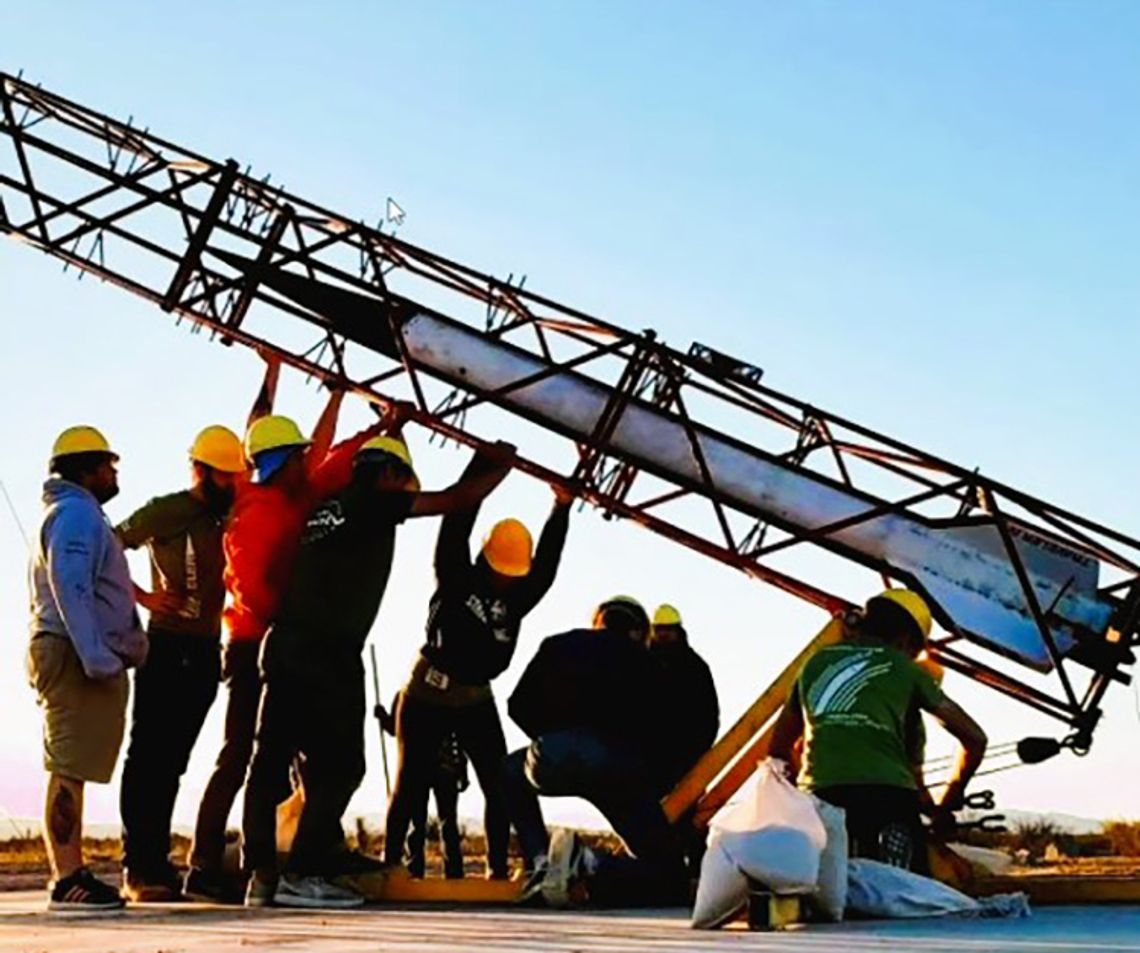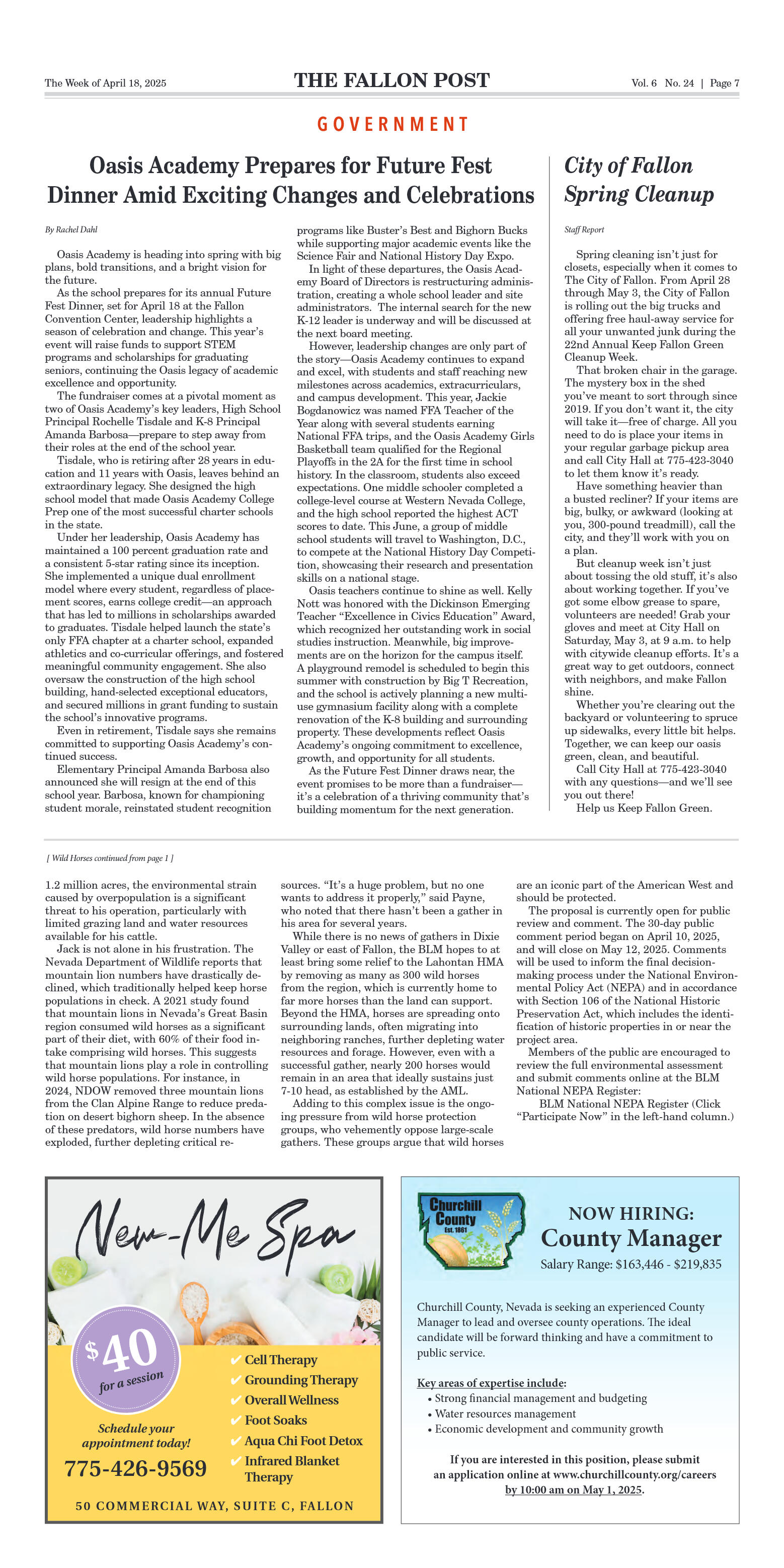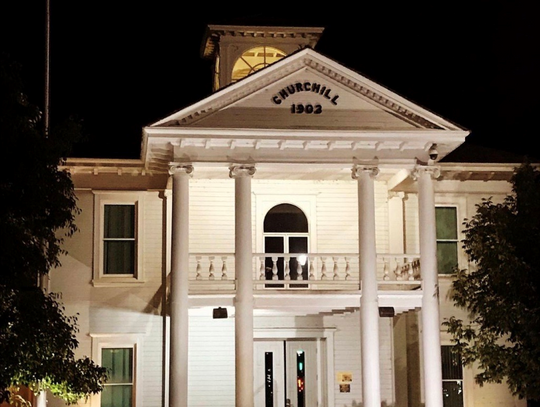By Leanna Lehman
Fallon is home to a wide array of businesses. Despite our proximity to tech giants Google and Apple, who have large-scale operations nearby, our small rural town has little in the way of advanced technology outside of NAS Fallon. However, that is about to change. Castelion Corporation, founded and operated by a host of former SpaceX employees, will soon bring some of its cutting-edge space technology to Fallon.
SpaceX, owned by business magnate and investor Elon Musk, is considered one of the world’s most advanced space technology companies and employs some of the most talented engineers, scientists, and developers. In 2022, some of that talent started their venture-backed modern defense tech company, Castelion, formerly Pallas Industries. They now provide high-cadence hypersonic testing for materials and electronic systems with a mission to create modern hardware development and manufacturing processes that will benefit national security through improved technology. For Fallon, that means rocket and rocket fuel/propellent testing.
Plans for the testing facility were discussed during the Churchill County Planning Commission meeting last Thursday, August 10, when Castelion sought approval on a Special Use Permit application that would allow them to begin preparatory work and improvements on a recently purchased 640-acre parcel of land located approximately 3.5 miles north of Hazen (APN 009-291-09).
Sean Pitt with Castelion provided some background information and discussed why they formed Castelion and entered defense and space manufacturing. “We left SpaceX in 2022 to address the need in the country for low-cost defense manufacturing,” said Pitt. “We see, with the rise of certain authoritarian powers around the world, the critical need for the US to develop defense hardware more quickly and cost-effectively as SpaceX has been able to do in the commercial launch market.” Castelion also addressed their infrastructure plans for the facility, the technology behind what they do, and how they plan to mitigate any potential issues that could impact neighboring areas.
Churchill County Public Works Director Chris Spross reported that the Castelion is developing new rocket motors and ground-testing them on a fixed mounting (with flight testing to occur elsewhere), specifically rocket fuels and propellants. “The rockets are not the size of the large NASA rockets and ICBM missiles, but rather of the size used on jet fighters with largest being about 10” diameter, 10’ long, and around 900 pounds,” said Spross. “Rocket fuel will be fabricated in small amounts and tested a couple of times a week.”
According to Spross, the facility will have two compounds that occupy roughly five acres, and the main operations compound holds most of the fuel ingredients, fuel mixing, motor case filling, storage for curing of completed motors, firing mechanisms, etc. The second compound is reserved for test firing the rocket motors and is some distance away for safety reasons. The testing mount is surrounded on the north, south, and east by a noise mitigation berm, and horizontal tests will be pointed west; other tests may be pointed skyward.
Castellion must first meet several requirements before they begin testing. First, the proposed use is listed as Explosion/Combustion testing in the Development Code Use Table, being allowed only in the Industrial zoning district. “The site must be rezoned as industrial before any on-site operations can begin,” Spross stated. A SUP would allow them to begin the preparatory work. However, any improvements they made before the rezoning approval are made at their own risk.
Additionally, Castelion must confirm legal access and secure physical access. Physical access means the road meets fire truck accessibility standards – generally a 20’ wide driving surface with gravel or better surface and can provide all-weather access for heavy fire trucks. The property is located along a power transmission line with a dirt/gravel road. Its legal access is unclear and needs to be defined. They must also be able to comply with the county’s development code concerning height, setbacks, easements, and friction zones. Other requirements include office, sewer, and water facilities, parking and loading structures, traffic mitigation, and minimal environmental impact.
Spross discussed noise pollution, stating that loud rocket testing could pose a significant environmental impact, affecting Hazen residents to the east and animals in wetland areas to the west. The large rockets will sound at about 180 decibels (a shotgun is about 160 decibels), be very sudden, may last for up to 15 seconds, and occur multiple times on testing days. To mitigate the sound, Castelion plans to construct a noise berm to reduce noise to the north, south, and east. “Earthen berms are very solid and good at blocking sound,” said Spross, who recommended the berm be at least 6’ high to ensure adequate noise reduction. “At ½ mile, where the nearest wetland is, the noise will be reduced from about 100 decibels to about 75 decibels. At four miles, where the Hazen townsite is, the noise will be reduced from about 77 to about 56.”
Rocket exhaust was also discussed, as it contains various chemicals that will be released. Spross noted that the rocket motors would be pointed west when firing, placing the initial plume west of the rocket mount. This location lies about 750’ from the power transmission line. Another issue relating to rocket exhaust is that the plume will extend into the air, possibly affecting aviation flights, including NAS Fallon, and testing could be subject to FAA requirements or may need coordination with NAS Fallon. Pitt explained that they have another testing site near Edwards Air Force Base and are familiar with potential conflicts. However, they only plan on ground testing in Fallon and do not anticipate issues with NASF airspace.
The commission granted the Special Use Permit, and Castelion will begin work to ensure the site meets all county requirements so that rezoning the property for industrial explosion and combustion testing can proceed.









































Comment
Comments